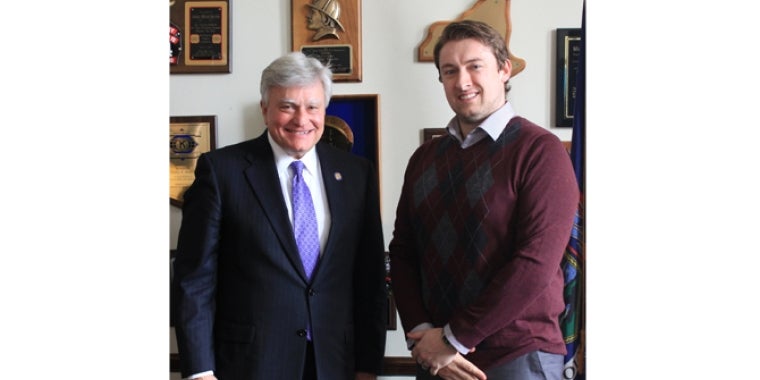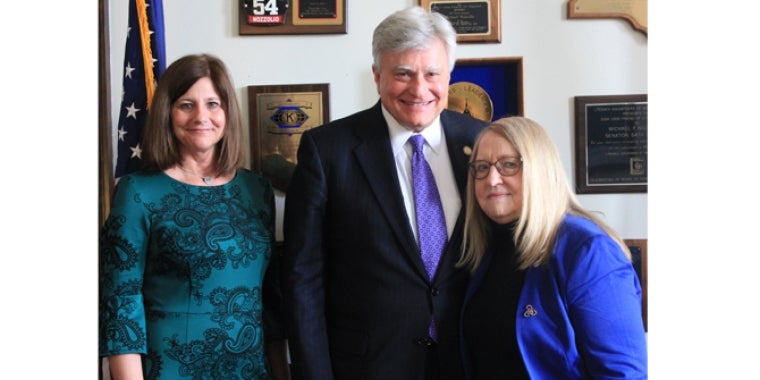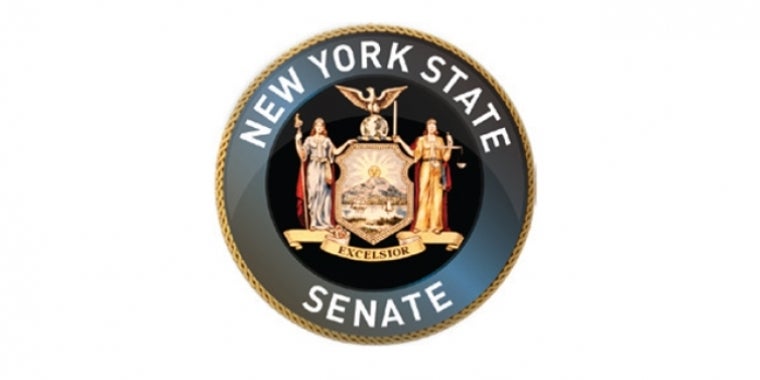
Senator Nozzolio Bill To Combat Manufacturing Of Methamphetamine Signed Into Law

Albany — New York State Senator Michael F. Nozzolio (R-Fayette) announced today that Governor George Pataki has signed into law legislation (S.5920) he sponsored that will impose tough new penalties on those who take part in the manufacturing of the illegal drug methamphetamine, commonly known as “meth.”
“Addressing and combating the growing production of methamphetamines is critically important to the safety of all residents in New York State,” said Senator Nozzolio, Chairman of the Senate Crime Victims, Crime and Correction Committee. “The use of highly addictive methamphetamines is the fastest growing drug problem in the country and is destroying lives. These tough new laws will help shut down the clandestine labs in our State where methamphetamines are being produced and will help protect our farmers, our families, our communities and our state.”
The new legislation will allow law enforcement officials to prosecute individuals who run and operate illegal, dangerous methamphetamine labs even if the individuals are not caught with the finished product. In addition, prosecutors can now seek felony level convictions for possession and/or theft of anhydrous ammonia, a common agricultural fertilizer and industrial refrigerant and key ingredient in the illegal production of methamphetamine.
The bill would also go beyond criminal penalties to comprehensively address all aspects of the methamphetamine problem. It would direct the Office of Alcoholism and Substance Abuse Services (OASAS) to implement a statewide education program concerning the
dangers of using and producing methamphetamine. The education material created by OASAS would be provided to social services, schools and other organizations that serve children, including certain mandated reporters so that they can recognize the signs of a meth lab operation in order to protect our children.
Environmental concerns cause by illegal meth labs are also addressed by requiring that the Department of Environmental Conservation be notified when a meth lab is discovered so they can implement cleanup procedures. And, as an additional aid to law enforcement efforts, the bill creates a meth lab database to assist in ongoing investigations relating to meth production.
Meth is the fastest growing drug threat and most prevalent synthetic drug manufactured in the United States. In the past five years, New York has seen a dramatic rise in the number of clandestine laboratories operating throughout the state. Additionally, New York has also seen a rise in the theft of anhydrous ammonia.
Previously, the law largely based the penalty for a theft or a possession of stolen property upon the value of the property involved. Thefts of, or possession of, stolen anhydrous ammonia, may not have constituted a felony if the amount stolen was not valued at over $1000. Senator Nozzolio’s measure allows prosecutors to seek a felony conviction for both possession of stolen anhydrous ammonia and larceny of anhydrous ammonia when such crimes are committed with intent to use the product to manufacture meth.
In 1999, New York State Police responded to three clandestine “meth” lab incidents and in 2003 responded to seventy-three incidents, an increase of over 2000 percent. In 2004, there were 53 incidents.
“As we have witnessed in our region, and most notably in Cayuga County, illegal drug makers often steal anhydrous ammonia from farmers and other areas where it is stored and used. Police have reportedly arrested more than 30 illegal drug runners in southern Cayuga County for stealing anhydrous ammonia from local farms. Police have also discovered at least four illegal methamphetamine labs in Cayuga County,” Nozzolio added.
The newly enhanced legislation strives not only to punish those who create this devastating drug, but also to educate people throughout the state, especially our children, on the life altering dangers of meth use and production.
“I commend Governor Pataki for signing this critical legislation into law to combat this substance’s potential illegal and deadly uses,” concluded Nozzolio.
###



